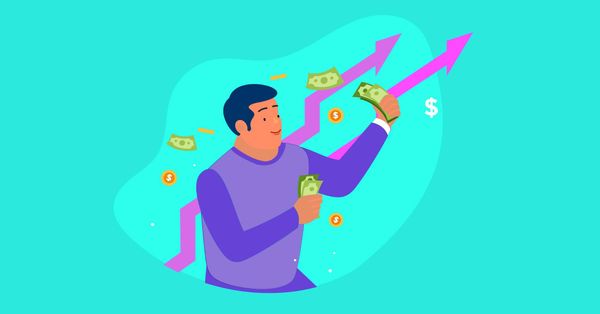The Power of Compounding — Explained
Once upon a time, a king was given the game of chess by its inventor. In return, the inventor asked only for some rice. But there was a catch.
The inventor requested that one grain of rice be placed on the first square of the chessboard, two on the second, four on the third, and so on, doubling with every square. The king, who had a fickle human brain, considered this a bargain and agreed readily.
What he didn’t factor in, was the exponential increase in the numbers as they doubled across the 64 square chessboard. To successfully complete the task, the inventor would have to be given over 18 quintillion grains of rice
This is the awesome power of compounding.
Compounding does not apply only to wealth, it's almost a law of nature. Most things in life compound.
- Work out regularly for a long time? Fitness compounds.
- Read a lot? Knowledge compounds.
- Spend time with your loved ones? Relationships compound.
In time, incremental actions become incredible results. That short run every day becomes a marathon. A few pages read leads to career progression. Small thoughtful acts build lifelong trust in relationships.
Compounding is the simplest, yet least understood path to building wealth.
In this post, we look at compounding from the perspective of money, and explain it's awesome power in long term wealth creation.
In school, we're taught simple and compound interest. One returns fixed interest on an initial (principal) amount for a fixed number of years, the other reinvests the interest to the principal and offers interest on the new principal.
Interest on interest.
What's so great about compound interest?
Well, suppose you invest a 100 dollars and get a 10% return in 1 year ($10). In the next year, you'd earn a further 10% on $110 ($11), and again on $121 the year after ($12.1).
Not bad huh?
Merely saving and not *growing* wealth will cause its value to decrease due to inflation. Compounding helps to generate more wealth than the value inflation eats away.
So where else can you get inflation beating compounding? The stock markets are a good place to start.
Companies listed on the stock market experience a similar compounding effect, as they earn more, reinvest money into growing more, and earn some more. Investors buy shares of these companies, and based on their performance, choose to pay lower or higher prices for these shares.
Usually, the share price of a company whose growth is compounding also experiences a compounding effect.
How do investors compound their wealth?
They invest smartly in companies that are showing excellent growth, make money by selling shares for a profit, and reinvest the profits into more companies that are growing.
If compounding is so simple, why doesn't everyone do it?
The short answer is 'time'.
Human brains are wired to think linearly. Simple interest, which offers fixed returns for a fixed period, is linear, and easy for most to comprehend. The growth offered by compound interest is exponential. And our monkey brains are not well equipped to tackle such nonlinear outcomes (as the king found out).
Think back to our earlier $100 example. When projected for 3 years, it didn't look very impressive did it?
Most people lose interest at this point. They either use these numbers as an argument to not invest in assets that compound, or pull out their money at the first sight of profits, interrupting the true power of compounding before the magic begins
What if you let $100 remain invested for 25 years, compounding yearly at 10%?
You'd have $1083.
How much would you have had if you were getting simple interest at the same rate for the same amount for the same time period?
$350.
This was a rather conservative example of compounding. In reality, smart investors can achieve far greater returns. But one constant in the story of compound interest is time.
Train your brain to think in longer cycles, and you unlock the true power of compounding.
Get an early start
The end result of compounding is not just dependent on how much one puts in, but also when they start.
If one person starts adding rice from square 1 of the chessboard, and the other from square 20, the diff. in outcome by the time both reach square 64 would be massive
Similarly, a person who starts letting their wealth compound at age 25 vs someone who starts at 35 will have a lot more money when both of them reach the age of 65, assuming both invest similar amounts It doesn't matter if you start small, starting early is what matters
- Start taking small, mindful actions today in every sphere of your life, and be consistent in those actions.
- Perform some physical activity every day, make coffee for a loved one, smile at people you meet often.
- And invest early, and regularly.
If you're still young and figuring out what to do in life, understanding the power of compounding early on can be your single greatest superpower. You may not see the results right away, but when you do, you might just be surprised.
Start today. 🚀
Yodaa is a smart money app and card for the entire family. Join the club of the smartest financially empowered teens in India and SE Asia. Get Yodaa today.



